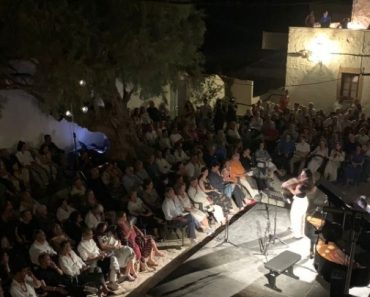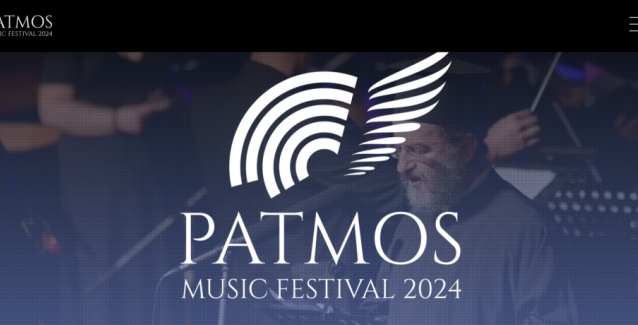BALTIMORE, MD – The State of Maryland has once again recognized Spyros Koliavasilis as a Master of Greek Traditional Music, marking the third time he has received this prestigious accolade. The Maryland State Arts Council (MSAC) has awarded him the Apprenticeship Grant, celebrating his invaluable role as a Master Teacher and in preserving and passing along the rich heritage of Greek Traditional Music, which encompasses a variety of melodies and rhythmic patterns played on traditional instruments from different regions and genres of Greece.
Master Koliavasilis, with his extensive knowledge and mastery of Greek Traditional Music, is set to mentor Apprentice Nicholas Mitrione. This grant not only acknowledges Koliavasilis’ exceptional expertise but also empowers him to continue the vital work of transmitting the nuanced and often esoteric knowledge of this music form. The apprenticeship will delve into the historical and cultural significance of the music, alongside the technical skills (e.g., rhythms, patterns, melodic styles, scales, and time signature) required to play authentic Greek Traditional Music.
Nicholas Mitrione, also a multi-instrumentalist, has been a dedicated student of Greek Traditional Music since approximately age 13, studying under the guidance of Master Koliavasilis at the Mediterranean Notes Music School, the only Greek and Mediterranean music school in the greater Washington, DC area and beyond. Now at the apprentice level, Mitrione has blossomed into a talented musician, performing on stages across the country alongside Master Koliavasilis as part of the duo Melos. The Mediterranean Notes Music School offers comprehensive training in Greek music.
Master Koliavasilis spoke with The National Herald about his latest honor and the importance of preserving Greek Traditional Music.

TNH: What does this latest honor mean to you?
Spyros Koliavasilis: It’s a wonderful surprise that shows acceptance of Greek Traditional Music in the Washington, DC Metropolitan area and around the United States. For me as a Master Teacher to win this for the third time, it’s a privilege. It shows that people recognize and appreciate what I’m trying to offer and that my mission is supported, accepted, and respected. It’s a hard and high standards competition because there are many artists from many other cultures and traditions. It’s a great honor and privilege to be recognized especially by fellow artists and music teachers.
TNH: How important is it to preserve Greek Traditional Music?
SK: Greek Traditional Music like most traditional music is the foundation to create other kinds of styles. It is a very important element that distinguishes the character and personality of an artist and the essence and character of the style of music they perform, whether it’s traditional, modern, progressive, world music, or jazz.
Greek music is very old with roots back to ancient Greece. It’s a versatile and multicultural music filtered with the Byzantine and Ancient Greek music. It’s multi-influence music due to the fact that we are around three continents, Europe, Asia, and Africa. As Greeks, we always have traveled and can see common elements with other cultures. We see common ground with Asian music, western scales, and other influences to Greek art and music through the travel of Greeks. Greek music blends the East with the South and West. There are European elements and influences from the Arab World and African music. To study Greek music in my perspective, a whole lifetime is not enough. It depends on what one wants to specialize in, perform, and teach. I’m specialized in a few kinds of Greek Traditional Music, but to say somebody is 100% specialized in Greek Music, that’s a utopia, it’s impossible.

TNH: Were you always interested in pursuing music as a career?
SK: My music activity started at the age of 8 with wind instruments, bassoon and oboe, and the English Horn. Music was always a companion for me and the best way to express my inner world and have an activity as a young child and later be productive working with other people. I find it a challenge as music activates our brain and neurons. In parallel with medicine [Dr. Koliavasilis is a medical doctor], I was always performing, but in the last decade I’ve been exclusively focused on performing and teaching music. I always say “music unites” because music is a way to share the culture and unite people. My students are often non-native Greek-Americans and also non-Greeks. Greek arts have followers from around the world and I feel blessed to have students that want to learn the Greek music and culture. It’s an honor and privilege for me.
TNH: Are there any upcoming performances or projects we can look forward to?
SK: There are always performances and concerts and we list them on our social media pages. You can check our performances through our official website www.SpyrosKoliavasilisMusic.com where we announce all concerts. One I’d like to highlight is coming up in November called ‘The Rebetiko Project’ where we introduce the context and history of the rebetiko genre and perform our repertoire of rebetiko songs to entertain and educate. Rebetiko reflects the joy, pain, sadness, and hope that people once experienced in the region, but the messages and feelings are still relevant today, so this music is alive.







